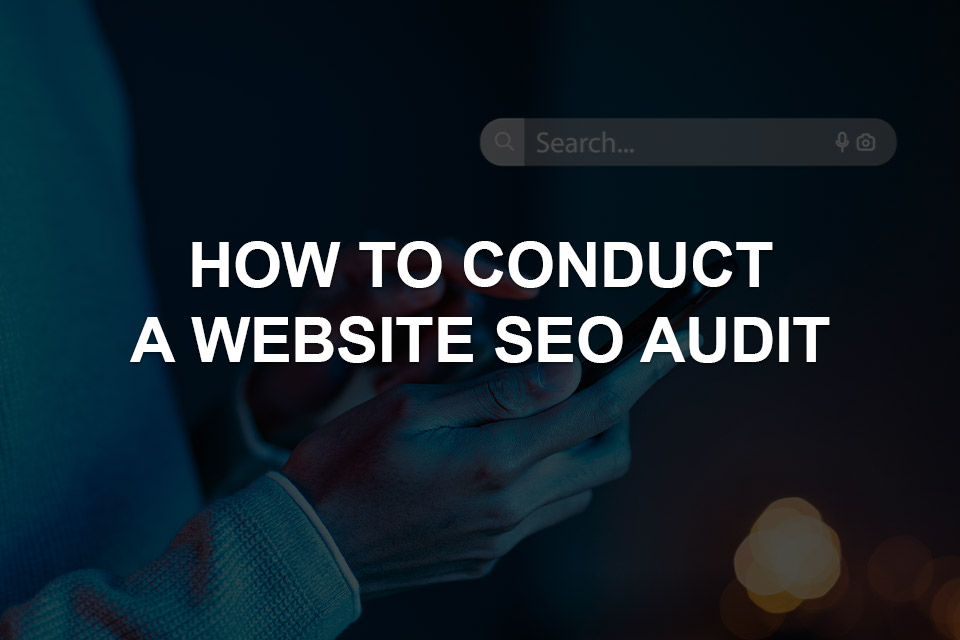How to Conduct a Website SEO Audit

Website SEO audit is an essential practice for maximizing your online presence and ensuring optimal search engine rankings. So, how do we go about conducting a successful website audit? From analyzing keywords and content to evaluating technical aspects and backlinks, this article will equip you with the knowledge and tools needed to increase your website’s visibility and drive organic traffic.
What is Website Audit in SEO?
In the realm of Search Engine Optimization (SEO), a website audit serves as a vital tool for assessing and enhancing the performance of your website. It involves a meticulous examination of various elements that influence search engine rankings, user experience, and overall online visibility. By conducting a website SEO audit, you can identify areas for improvement, rectify errors, and implement effective optimization strategies to propel your website toward success.
A free SEO website audit entails a thorough evaluation of your website’s technical aspects, on-page SEO elements, and off-page SEO factors. It aims to uncover problems or inefficiencies that may adversely affect your website’s search engine rankings and hinder its visibility to users.
During a website SEO audit free, it is possible to examine the technical components of your website, analyzing factors such as website speed, responsiveness, and mobile compatibility. By ensuring optimum performance in these areas, you can create a smooth user experience and achieve higher rankings by improving search engine crawlability.
How Should SEO Audit Be Performed?
Performing a comprehensive SEO audit website is extremely important to optimize your website’s performance and increase its visibility in search engines. By following a systematic approach, you can identify and correct problems that may hinder your website’s search engine rankings. In this article, we will guide you through a step-by-step process to perform an effective SEO website audit to ensure that your website is fully optimized to attract organic traffic and improve its online presence.
Keyword Research and Analysis
Identify Target Keywords: Begin by identifying the primary keywords that are relevant to your website’s content and industry.
Evaluate Keyword Performance: Take control of your website by analyzing the search volume, competition, and relevance of your target keywords using website SEO audit tool like Google Keyword Planner or SEMrush.
Keyword Mapping: Align each webpage with specific target keywords to ensure proper optimization and avoid keyword cannibalization.
On-Page SEO Evaluation
Title Tags and Meta Descriptions: Review and optimize the title tag and meta description to accurately reflect the content and attract click-throughs from search engine results pages (SERPs). This method is one of the most important steps for website audit for SEO.
Header Tags and Content Structure: Check the proper usage of header tags (H1, H2, etc.) and ensure a logical content structure for better readability and keyword optimization.
URL Structure: Another item on the SEO website audit checklist is URL structure. Verify that URLs are concise, descriptive, and include relevant keywords for both users and search engines.
Content Quality: Assess the overall quality of your content, ensuring it is original, valuable, and well-structured. Identify opportunities for improvement or content gaps that need to be filled.
Technical SEO Analysis
Website Speed and Performance: Evaluate the loading speed of your website using a website SEO audit tool like PageSpeed Insights and optimize it for a faster user experience.
Mobile-Friendliness: As mobile optimization is crucial for search engine rankings, you should check that your website is responsive and mobile-friendly.
Crawlability and Indexing: It is important to ensure that search engine bots can crawl and index your web pages by reviewing the robots.txt file and XML sitemap and fixing crawl errors.
Off-Page SEO Assessment
Backlink Profile Analysis: Evaluate the quality and quantity of your website’s backlinks for a full website SEO audit, and make sure they are from reputable sources and relevant to your industry.
Link Building Opportunities: Identify potential opportunities for acquiring high-quality backlink through guest blogging, influencer outreach, or content partnerships.
Using website SEO audit services allows you to identify weak areas, correct errors and implement effective optimization strategies. It allows you to optimize technical aspects, improve the user experience and make your website compliant with search engine requirements. By performing regular website audits and implementing the necessary improvements, you can strengthen your online presence, attract organic traffic and stay one step ahead of the competition in an ever-evolving digital environment.
Ready to unlock the full potential of your website? Take charge of your online presence and embark on a journey to greater visibility and success. Discover the power of SEO and start a website transformation. Open the door to a brighter digital world with a comprehensive website SEO audit today!
FAQs
Which tools would you use to conduct an SEO audit of your website?
When performing a website audit for SEO, using the right tools can greatly facilitate the process and provide valuable insights. It is possible to perform the most accurate website audit with a combination of reliable SEO tools such as Google Search Console, SEMrush, Moz, and Ahrefs. These tools allow you to analyze important aspects such as keyword performance, backlink profile, on-page optimization, technical SEO issues, and more, allowing you to optimize your website’s visibility in search engine rankings.
What should be included in an SEO content audit?
To ensure comprehensive optimization in a content audit and website SEO audit, the suitability and use of target keywords to be included in the content must first be evaluated. Secondly, factors such as originality, readability, meta tags, titles, and internal link structure should be considered and the overall quality and engagement value of the content should be examined. In addition, the performance of the content should be analyzed in terms of organic traffic, backlinks, and social shares to measure the quality of the content and identify areas for improvement.
What’s the first thing you look at when doing an SEO audit?
The first point to examine for an SEO audit is the overall technical health of the website. This includes evaluating critical factors such as website speed, mobile compatibility, and crawlability. It is important to conduct a thorough analysis of the website’s performance using tools such as Google PageSpeed Insights and Mobile-Friendly Test. You should also review the robots.txt file and XML sitemap to ensure that search engine bots can effectively crawl and index your web pages. By prioritizing an SEO audit website, you can create a solid framework for subsequent optimizations and improvements and lay a healthy foundation for user experience.



0 Comments